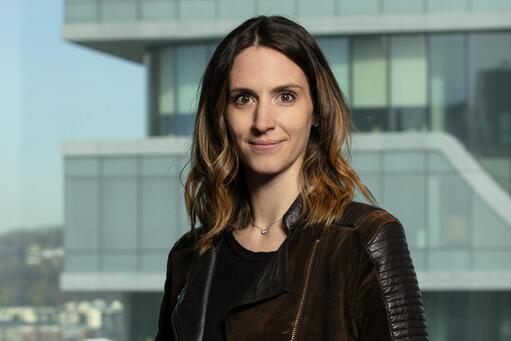NEW YORK, NY – The world of technology startups has known massive success from founders like Steve Jobs, Jeff Bezos, and Mark Zuckerberg. Startups form an integral part of the economy, with a majority of the largest companies rooted in technology, and venture capital investments totaling approximately $300 billion annually. However, not all technology startups are success stories, and it’s nearly impossible to tell what will make a technology startup successful, especially during the company’s early stages. New Columbia Business School research finds that it is possible to determine whether or not a startup will be successful, and it comes down to the founder’s personality traits.
The study, Founder Personality and Entrepreneurial Outcomes: A Large-Scale Field Study of Technology Startups shows that founder personality plays an important role across the different phases of a new venture’s development, from initial fundraising to exit. Columbia Business School Professor Sandra Matz and Columbia Business School PhD Candidate Brandon Freiberg ‘24 find that four of the Big Five personality traits of openness to experience, conscientiousness, agreeableness, and neuroticism can be used to identify the likelihood of a founder’s tech startup being successful at varying stages. Extraversion is the only personality trait with no significant relationship with startup outcomes. Developed in the 1980s as a model to understand the relationship between personality and academic behavior, the widely accepted Big Five Model states that personality can be boiled down to the five core traits.
Professor Matz and Freiberg found that conscientiousness and neuroticism are the two traits that most consistently predict startup outcomes. They found that higher levels of neuroticism among founders were linked to a funding gap of approximately $90,000, significantly fewer investors in the first round, and a 16% lower chance of exiting.
In contrast, conscientiousness showed a more complex pattern that varied across the different outcomes. Specifically, conscientious founders raised approximately $170,000 more from fewer investors but had a 15% lower likelihood of exiting. While conscientiousness is typically considered a major driver of workplace performance, the pattern Professor Matz and Freiberg observed suggests an interesting, previously unknown, dynamic between conscientiousness and startup success. In the early stages of startup formation, investors might be looking for founders with a sound business plan, attention to detail and the ability to carefully manage scare resources. However, as startups mature, the same disposition that allowed founders to attract initial funding might turn into a disadvantage. Why might this be the case? On the one hand, it is possible that highly organized founders find it harder adjusting to the fast-paced and ever-changing technology landscape. On the other hand, the “move-fast-and-break-things” culture embraced by Silicon Valley might reward founders who are willing to win at all costs, take risks and come across as disruptive.
Openness and agreeableness show a 5% increase in the likelihood of raising a first round of funding – but have no impact on the subsequent conditional outcomes (i.e., the amount raised in the first round, the number of investors, as well as the likelihood of exiting via IPO or acquisition).
“The contribution from tech startups to the global economy is huge. Technology startups determine so much of where society is going and what we can do, from addressing climate change to making new language models,” said Professor Sandra Matz, the David W. Zalaznick Associate Professor of Business at Columbia Business School. “Understanding what makes people successful in technology startups is a key piece to ensuring that these startups can have an even bigger and more long-term impact on the world.”
Professor Matz and Freiberg built a generalized data model that used the social media data from the MyPersonality project, a Facebook application active between 2007 and 2012 that allowed users to take validated psychological assessments and receive immediate feedback on their responses. In total, they looked at 65,598 users and were able to predict certain personality traits based on the Big Five personality traits. Next, they sourced 10,000 tech founders from data on CrunchBase, a repository of startup data. They used the data model trained on the MyPersonality data to successfully estimate founders’ personality from their tweets during the two years prior to when they founded their startups. Twitter is known to be an important communication platform among startup and investor communities and past research has shown that personality can be accurately predicted from tweets. Finally, they used Crunchbase to connect the founders to their startups to analyze outcomes: whether the startup raised funding, the amount it raised in the earliest funding round, the number of investors it included in the earliest funding round, and whether it exited via acquisition or IPO. This allowed them to see which personality traits were associated with the respective startup outcomes.
“For startups, and especially technology startups, investors want to know as early as possible whether a startup is going to succeed or not. And it’s very difficult to do this in the beginning because most of what investors will see is the person behind the company, and many investors place enormous weight on that,” said Freiberg. “Through research, it’s possible to shed light on what personality traits can make founders successful.”
To learn more about the cutting-edge research being conducted, please visit the Columbia Business School.
###


